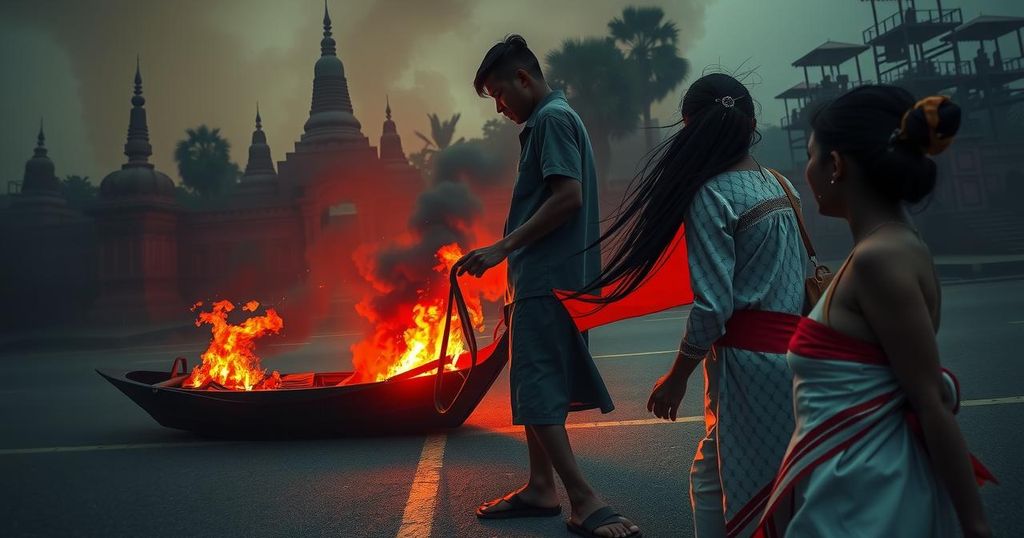Decoding the Ongoing Crisis in Myanmar: The Impact of Conflict and Regional Reactions
Myanmar has been embroiled in a civil war following the 2021 military coup, with significant resistance against the military junta from various groups. This conflict poses regional challenges, leading neighboring countries, including India, to enhance security measures. As the situation unfolds, the involvement of international actors raises questions about the future stability of Myanmar and its implications for Southeast Asia.
Since the military coup in Myanmar in 2021, the nation has plunged into an intricate civil war involving the ruling junta, known as the State Administration Council (SAC), and multiple resistance forces, including the recently formed National Unity Government, ethnic armed organizations, and civilian groups. These entities have successfully seized control over significant areas previously dominated by the military. In response, the junta has intensified its efforts to reclaim these territories. However, the ongoing conflict has severe ramifications for regional stability, prompting increased security measures from neighboring countries such as India, which is fortifying its northeastern borders, while Bangladesh and Thailand brace for potential influxes of refugees. Moreover, there is a growing concern about crimes against civilians, including arms and drug trafficking, and cybercriminal activities. The future remains uncertain as the conflict raises critical questions regarding Myanmar’s trajectory and the responses of nations, including the United States, China, and Russia, while also impacting India’s security dynamics in the region.
The 2021 military coup in Myanmar marked a significant turning point for the nation, igniting widespread civil unrest and leading to a multipronged civil conflict. The State Administration Council’s struggle against various opposition groups, including the National Unity Government, signifies a profound challenge to the military’s authority. Control over territories has shifted towards insurgent factions, raising concerns not only within Myanmar but also among Southeast Asian nations. The potential spillover effects on neighbors and the broader implications for security in the region amplify the urgency of international diplomatic engagement and humanitarian assistance.
In conclusion, the civil conflict in Myanmar, intensified by the military coup, presents considerable challenges for national and regional stability. The resilience of resistance groups against the State Administration Council underscores a fragmented political landscape, which has broader implications for neighboring countries, particularly India, Thailand, and Bangladesh. The ongoing humanitarian crisis calls for urgent international attention, as the geopolitical dynamics involving major powers like the US, China, and Russia continue to shape Myanmar’s future. Ultimately, achieving a resolution will require concerted diplomatic efforts and a commitment to restore peace and security in the region.
Original Source: www.orfonline.org








Post Comment